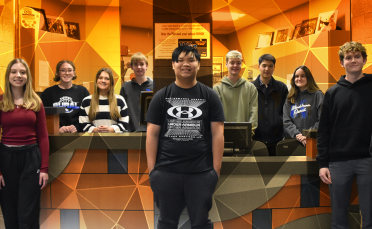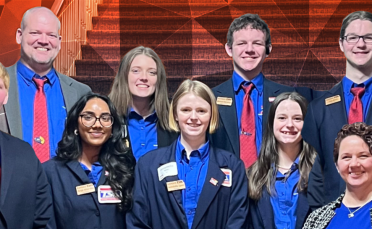Parents and Guardians Can Help Their Kids Make Great Choices for the Future

Hi! I’m Jim Genandt, President/CEO of Manhattan Area Technical College (MATC) in Manhattan, Kansas. MATC is an institution of higher education, and our emphasis is on HIRE education. We help our students enter the workforce with skills for essential occupations.
As a Parent and a Technical Educator…
I have raised a family of five (two still in high school), plus a couple nephews and friends of our kids who moved in with us (and it was a good decision by them and their parents). I have been a foster parent for children, too. So, I have some experience with what all parents and guardians wrestle with at times, especially when it comes to helping young people make decisions about their future.
I also know that higher education has been knocked around recently. Too expensive, too much debt from student loans, students who struggle to finish, and getting a good job out of all of it. Those are just some of the issues that seem to drive conversations…and concerns.
So, I would like to share some insights as a parent, and as someone who has worked in higher education, too.
Have the Talk About Dual-Credit Classes
First, it’s never too early to start talking with your kids about post-secondary education. High wage, high-demand occupations, as well as many critical-need jobs, require some post-secondary education, but often do not require a four-year degree. That’s an important distinction to understand and act on!
Now, your child will probably have an opportunity to get an early start on post-secondary education while they are still completing high school. For example, MATC offers both general education and technical education courses to area high school students. These are often called concurrent or dual-credit classes. There are several advantages for students who grab this opportunity:
- Students who start college classes while in high school often require less time to complete their college-level certificate or degree program.
- They often save money by taking early colleges classes from their local two-year college rather than a four-year college or university.
- They may be able to enter the job market sooner and more easily, especially if they have pursued a technical education program of study.
- Students often get a better idea of what they want to specialize in by starting college classes early.
- Early college classes often can be accepted for high school credit, too — and the college classes often help students complete high school!
Make a Smart Move
While taking dual-credit classes often will help your child get ready for the future, they also can benefit you, by helping your family save money, helping your child gain focus about what they want to do after graduation, and opening up possible scholarship and financial aid opportunities to your child after they complete high school.
In Kansas, many high school students can take technical education courses through their local technical or community college at no charge (or for a substantial savings!). Those students can earn their welding certificate, certified nursing assistant or many other qualifications as they complete high school. They are often job-ready — with low or NO student debt — and primed to earn good wages in an essential occupation.
Higher education offers value. HIRE education offers a rapid return on investment and multiple options for continued learning and job advancement.
Please encourage your child to consider early college options with you. The results may astonish you!



